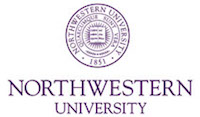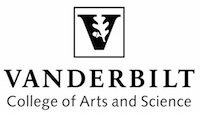Monika R. Alston-Miller, Communication, University of Central Arkansas
“The Role of Sabbath Schools in the Rhetorical Education of Maria W. Stewart, 1820–1830”
Monika R. Alston-Miller is an assistant professor in the Department of Communication at the University of Central Arkansas. She earned her Ph.D. in Communication Arts and Sciences from Pennsylvania State University. Her dissertation investigated the political communication of African-American women from 1950 to 2005. Dr. Alston-Miller has published profiles on a number of women in politics for publications in communication and African-American history. She is currently completing essays on Maria W. Stewart and the intersection of religion and politics in Black women’s 19th century activism. She teaches a variety of courses in communication including, social movements, interracial communication, argumentation, political communication, and public speaking.
Trudy E. Bell, High-Performance AstroComputing Center, University of California, Santa Cruz, & Craig B. Waff
“‘Winged and Luminous Analysis’: The Voice of Ormsby MacKnight Mitchel”
Craig B. Waff (1946–2012), earned his Ph.D. in history of science from Johns Hopkins University. After serving as a science and technology editor for several reference works (Encyclopedia Americana, Collier’s Encyclopedia, and the Concise Columbia Encyclopedia), he was a contract historian at NASA’s Jet Propulsion Laboratory and the wing historian of the 89th Airlift Wing (which operates and maintains Air Force One) at Andrews AFB near Washington, D.C. From 2004 until his death, he was Senior Historian at the Air Force Research Laboratory at Wright-Patterson AFB near Dayton, Ohio.
Trudy E. Bell, senior writer for the University of California High-Performance AstroComputing Center, earned her M.A. in the history of science and American intellectual history from New York University (1978). A former editor for Scientific American and for IEEE Spectrum magazines, she has also served as managing editor of the Journal of the Antique Telescope Society (2003–2006). Nineteen of her 350+ popular articles about astronomy and space technology have received top journalism awards, including the 2006 David N. Schramm Award from the American Astronomical Society. In spring 2010 and again in spring 2011, she was a Presidential Fellow at Case Western Reserve University.
E. Douglas Bomberger, Fine and Performing Arts, Elizabethtown College
“Amy Fay and the Origins of the Lecture-Recital”
E. Douglas Bomberger is professor of musicology at Elizabethtown College, where he teaches music history and piano. His doctoral dissertation at the University of Maryland examined the motivations and experiences of American music students in nineteenth-century Germany. His subsequent work has explored topics as diverse as the cosmopolitan style in nineteenth-century American music; the influential American Composers’ Concert movement of the 1880s; and America’s preeminent nineteenth-century composer, Edward MacDowell. He is currently engaged in writing a biography of the music publisher Theodore Presser (1848–1925).
Yvonne Carignan, Special Collections & Archives, George Mason University
“Social Libraries: A Culture of Learning in Antebellum Virginia”
Yvonne Carignan currently heads Special Collections & Archives, George Mason University Libraries. She has an M.A.in History from Mason and an MSLS from the University of North Carolina at Chapel Hill. Carignan’s research and publications have ranged from early 19th century American social history and to preservation and the future of libraries. Her present research project has been supported by George Mason University Libraries and an American Library Association Gale Cengage History Research and Innovation Award.
Richard Benjamin Crosby, English, Iowa State University
“Secret Knowledge, Public Stage: Magic and Revolution in Joseph Smith’s ‘King Follett Discourse'”
Richard Benjamin Crosby (Ben) is an assistant professor of speech in the English department at Iowa State University. Broadly conceived, his scholarly interests lie in the history, theory, and criticism of rhetoric. More specifically, he studies how minority religious groups find and maintain footholds in an unaccommodating religious culture. For this reason, he has done work on Mormonism, the Black Church tradition, and Early American Catholicism. His work has been published in Rhetoric Society Quarterly, Philosophy and Rhetoric, Argumentation and Advocacy, Rhetoric and Public Affairs, the Journal of Communication and Religion and elsewhere. He has begun work on a book that examines rhetorical history and cultural significance of the Washington National Cathedral. Drawing on extensive archival work, he argues that the historical, spatial, iconographic, and textual elements of the Cathedral challenge existing notions about American Civil Religion and the rhetorical concept of kairos.
Carolyn Eastman, History, Virginia Commonwealth University
“Toward a New Interdisciplinary Analysis of Platform Culture in the Long Nineteenth Century”
Carolyn Eastman is associate professor of history at Virginia Commonwealth University and a Distinguished Lecturer for the Organization of American Historians. Her research is primarily concerned with the ways that men and women in the past interacted with politics and cultural notions of belonging and exclusion via the media of writing, oratory, and visual images. She has published about early Americans’ fascination with Indian eloquence; schoolgirls’ vindications of female oratorical excellence; antebellum debates over how to advocate world peace; portrayals of gender and sexuality in popular texts about Atlantic pirates; and accounts of mixed-race families and marriages in Atlantic travelogues. Her prizewinning A Nation of Speechifiers: Making an American Public after the Revolution appeared in 2009, and she is currently developing two book manuscripts: one entitled The Strange Genius of Mr. O.: Oratory, the Media, and Fame in Early America, and the second entitled Learning to See: Gender and Travel in the Atlantic World of Print.
Granville Ganter, English, St. John’s University
“Before the Lyceum: Professional Lecturing in the Early National Period, 1784–1826”
Granville Ganter is a researcher of early American oratory. His principal work has been a collected edition of the speeches of the Seneca diplomat, Red Jacket (Syracuse UP, 2006), as well critical essays on the lecturing of Ralph Waldo Emerson, Frederick Douglass, and early American women. His recent research has focused on the recovery of Anne Laura Clarke, a previously unknown popular lecturer: “Mistress of Her Affairs: Anne Laura Clarke, Traveling Lecturer of the 1820s,” New England Quarterly 87.4 (Dec 2014): 709–746.
Virginia Garnett, English, University of North Carolina at Pembroke
“The Voice Obscured: Standing Bear, Bright Eyes, and the Trouble with Translators on the Platform”
Virginia Garnett received her doctorate in English from the University of Delaware in 2014 and now serves as Lecturer of English at UNC Pembroke. Her work has appeared in Irish Studies Review, The Cosmopolitan Lyceum: Lecture Culture and the Globe in Nineteenth-Century America (UMass, 2013), and ZAA: A Quarterly of Language, Literature and Culture. Her scholarship focuses on the intersection of orality and print in the nineteenth-century literary marketplace, and she is currently working to revise her dissertation, The Podium in Print: The Popular Lecture in American Literary Culture, 1865–1914, for publication.
Elisabeth H. Kinsley, Communication Studies, Northwestern University
“‘Then the Charm Is Firm and Good’: Shakespeare and the Myth of the Melting Pot in Progressive Era Manhattan”
Liz Kinsley is a 2015 doctoral graduate from Northwestern University’s Program in Rhetoric and Public Culture, a Ph.D. concentration within the Communication Studies department. Liz’s work focuses on rhetorical and cultural analysis of theater and performance, expressions of national belonging, and historical constructions of race and ethnicity. In her dissertation she studies productions of Shakespeare staged by and for immigrant communities in Progressive era Manhattan. Liz received an American Society for Theatre Research Helen Krich Chinoy Dissertation Fellowship in November 2014, has published in Text and Performance Quarterly, and earned Past Officer’s Top Debut Paper at the 2013 Central States Communication Association conference. Liz holds a BA in English and music from Yale University and an MA from New York University’s Draper Program in Humanities and Social Thought, where her concentration was Literary Cultures.
Sara Lampert, History, University of South Dakota
“Performances ‘Both Grave and Gay’: The Dramatic Reader in the Lyceum Circuit”
Sara Lampert is an Assistant Professor of History at the University of South Dakota. She received her Ph.D. from the University of Michigan in 2012. Her book project, Sentiment and Sensation: How Female Celebrity Transformed American Entertainment, 1820–1860 uses the stories of female stage performances to show how a transatlantic culture of female stage celebrity fueled the growth of commercial entertainment, informed the construction of national and regional identities, and helped redefine modern gender roles. Lampert is also developing a side project on the emergence and popularization of dramatic reading across the 19th century. She has published a chapter on musical performance in the post-Civil War lyceum in The Cosmopolitan Lyceum: Lecture Culture and the Globe in Nineteenth-Century America, edited by Tom F. Wright (University of Massachusetts Press, 2013). She has recently presented her work on the gender politics of entertainment and urban life at the Berkshire Conference of Women Historians, Organization of American Historians, and American Studies Association meetings.
Shirley Wilson Logan, English, University of Maryland, College Park
“Lecturing and Learning in the Pages of the Nineteenth-Century Black Press”
Shirley Wilson Logan is Professor in the Department of English at the University of Maryland, where she teaches writing, composition theory, the history of rhetoric, and nineteenth-century African American rhetoric. Logan’s most recent publication, Liberating Language: Sites of Rhetorical Education in Nineteenth-Century Black America, examines contexts in which African Americans developed their rhetorical abilities across the nineteenth century. Other publications include With Pen and Voice: A Critical Anthology of Nineteenth-Century African-American Women and We Are Coming: The Persuasive Discourse of Nineteenth-Century Black Women. She co-edits the Southern Illinois University Press Series, Studies in Rhetorics and Feminisms, with Cheryl Glenn. Past Chair of the Conference on College Composition and Communication (CCCC), Logan serves on the board of the Rhetoric Society of America, and the editorial board of Rhetoric Review and the online Voices of Democracy: The US Oratory Project. She maintains a career-long interest in public discourse. Logan is currently working on a biography of Frances Watkins Harper.
Lisa McGunigal, English, Pennsylvania State University
“Transatlantic Performance: William and Ellen Craft’s Running a Thousand Miles for Freedom”
Lisa McGunigal is a Ph.D. student in the English Department at Pennsylvania State University. Her dissertation, “Novel Stages: Theatricality, Authorship, and the Production of the American Realist Novel,” looks at the influence of cultural entertainment on American realist authors and editors and how we are able to see, from conception to production and ultimately reception, the many stages of the American realist novel that allowed authors, editors, and readers alike to envision alternative identities as they critiqued received attitudes and assumptions about race and class, and gender and politics, among other important concerns. She has published “Twins of Genius: Mark Twain on the Stage, Huck Finn on the Page” in the Mark Twain Annual (November, 2011).
Elizabeth McHenry, English, New York University
“Oratory Brought Home: The Remaking of African American Intellectual Forums at Century’s End”
Elizabeth McHenry is an Associate Professor of English at New York University. The focus of her research is African-American literature, culture, and intellectual history in the nineteenth and early twentieth centuries. As a literary historian, her work is committed to using archival materials to map those invisible or overlooked aspects of African American print culture and intellectual history. She is the author of Forgotten Readers: Recovering the Lost History of African American Literary Societies (Duke University Press, 2002), which chronicles the reading practices and organized literary associations of African Americans between 1830 and 1940. She is currently completing a book-length manuscript entitled “Remaking Negro Literature: Writing, Literary Practice, and African American Authorship, 1895-1910,” a project that seeks to make visible how literature was envisioned and transformed in the transitional years between two centuries.
Johann Neem, History, Western Washington University
“The World’s Teachers: The Common School Classroom as a Contested Democratic Public Space”
Johann Neem is Professor of History at Western Washington University. He is author of Creating a Nation of Joiners: Democracy and Civil Society in Early National Massachusetts (Harvard, 2008) and is currently completing a book about the common schools movement. His work has appeared in such journals as History and Theory, the Journal of the Early Republic, and the Journal of Interdisciplinary History. During the 2014–15 academic year he was a Visiting Faculty Fellow at the Institute for Advanced Studies in Culture at the University of Virginia. He has also been a regular commentator on higher education issues in such outlets as Inside Higher Ed and is an Affiliate of the Wisconsin Center for the Advancement of Postsecondary Education at the University of Wisconsin-Madison.
Britt Rusert, Afro-American Studies, University of Massachusetts Amherst
“Racial Science, from Page to Stage”
Britt Rusert is Assistant Professor of Early African American Literature in the W.E.B. Du Bois Department of Afro-American Studies at UMass Amherst. This year she is also a Visiting Associate Research Scholar in English at Princeton University. Her book manuscript, Fugitive Science: Empiricism and Freedom in Early African American Culture, uncovers a neglected genealogy of African American experiments with natural science before the Civil War. Her essays have appeared or are forthcoming in American Quarterly, African American Review, Early American Studies, Radical History Review, Journal of Law, Medicine, and Ethics, and others. An edition of W.E.B. Du Bois’s little-known fantasy fiction, “The Princess Steel,” co-edited with Adrienne Brown, is forthcoming in PMLA.
Bjørn F. Stillion Southard, Communication Studies, University of Georgia
“The Liberia Lyceum and the Transatlantic Contestation of Black Citizenship, 1838–1850”
Dr. Bjørn F. Stillion Southard is an Assistant Professor in Communication Studies. He holds a Ph.D. and MA from the University of Maryland. Dr. Stillion Southard is interested in early U.S. Public Address, particularly in discourses concerning race and law. He is currently working on projects related to the American Colonization Society (a group that supported sending free blacks to a colony in Liberia). His research has appeared in Rhetoric & Public Affairs, Argumentation and Advocacy, and Voices of Democracy.
Scott R. Stroud, Communication Studies, University of Texas at Austin
“The Rhetoric of Pluralism and the Onus of Comparability: Swami Vivekananda on the Crowded Stage of the 1893 World’s Parliament of Religions”
Scott R. Stroud is an associate professor of communication studies at the University of Texas at Austin. Situated at the confluence of rhetoric and philosophy, his work explores various ways that important cultures and thinkers have integrated rhetorical means into schemes of moral improvement. His book, John Dewey and the Artful Life (Penn State Press, 2011), grounds his subsequent investigations of American pragmatism, rhetoric, and moral cultivation. Kant and the Promise of Rhetoric (Penn State Press, 2014), his latest book, is a first-of-its-kind reappraisal of the role of the rhetorical arts in Kant’s political and moral philosophy
Kirt H. Wilson, Communication Arts and Sciences, Penn State University
“Pale Imitation or Perverse Original: The Challenge of Race for America’s Lecture Stage”
Kirt H. Wilson is Associate Professor of Rhetoric and Political Communication at the Pennsylvania State University, Communication Arts & Sciences Department. He has published widely in the areas of African American public discourse, nineteenth-century political communication, the civil rights movement, memory, and public deliberation. In addition to numerous journal articles and book chapters, he is the author of The Reconstruction Desegregation Debate: The Politics of Equality and the Rhetoric of Place (Michigan State Press, 2002), associate editor for The Sage Handbook of Rhetorical Studies (2009), and, most recently, co-editor of Making the Case: Advocacy and Judgment in Public Argument (2012). Professor Wilson is currently writing two book-length manuscripts. In the first he considers the theory and practice of mimesis (imitation) in the nineteenth-century as they relate to the political status of people of color. In the second he is researching the America’s public memory of the civil rights movement.
Carly S. Woods, Communication Studies, University of Nebraska-Lincoln
“A Tale of Two Lucys: Remembering Oberlin’s Early Orators”
Carly S. Woods (Ph.D., University of Pittsburgh) is an assistant professor in the Department of Communication Studies and the Women’s and Gender Studies Program at the University of Nebraska-Lincoln. Her research examines how individuals and groups use deliberation and debate to negotiate questions of identity, power, and social difference. Woods’s scholarship has been published in the Quarterly Journal of Speech, Women’s Studies in Communication, Argumentation & Advocacy, and KB Journal. Her major project, Debating Women: Rhetoric, Argument, and Social Change in Historical Debating Societies, is a book-length manuscript on women’s debating societies in the United States and United Kingdom from the 1840s to the 1940s.
Tom F. Wright, English, University of Sussex
“Positioning the Atlantic Lyceum”
Tom F. Wright is a Lecturer in American Literature at the University of Sussex, England, specialising in nineteenth-century writing and cultural history. He is the editor of The Cosmopolitan Lyceum: Lecture Culture and the Globe in Nineteenth-Century America (Umass Press, 2013), and is completing a monograph entitled Lecturing the Atlantic: Speech, Print and Identity on the Antebellum Platform. He has published essays on Ralph Waldo Emerson, Bayard Taylor, Herman Melville, the painter Richard Caton Woodville and on the teaching of oratory. His new project looks at ideas of infrastructure, interconnectivity and aesthetics in nineteenth-century culture.
Ronald J. Zboray and Mary Saracino Zboray, Communication, University of Pittsburgh
“The Civil War and the Popular Lecture”
Ronald J. Zboray is a Professor in the Department of Communication, and Director of Cultural Studies at the University of Pittsburgh where Mary Saracino Zboray is a Visiting Scholar. Ronald authored A Fictive People: Antebellum Economic Development and the American Reading Public (1993). Together they have published numerous articles on antebellum cultural history, including “‘Women Thinking’: The International Popular Lecture and Its Audience in Antebellum New England,” in The Cosmopolitan Lyceum: Lecture Culture and the Globe in Nineteenth-Century America, ed. Tom Wright (2013), and four books, including Literary Dollars and Social Sense: A People’s History of the Mass Market Book, (2005) and Everyday Ideas: Socioliterary Experience among Antebellum New Englanders (2006). They are working on a book manuscript entitled “The Bullet in the Book: Volumes that Saved Civil War Soldiers’ Lives,” and are co-editing US Popular Print Culture to 1860, volume five of The Oxford History of Popular Print Culture.


